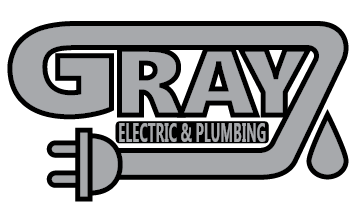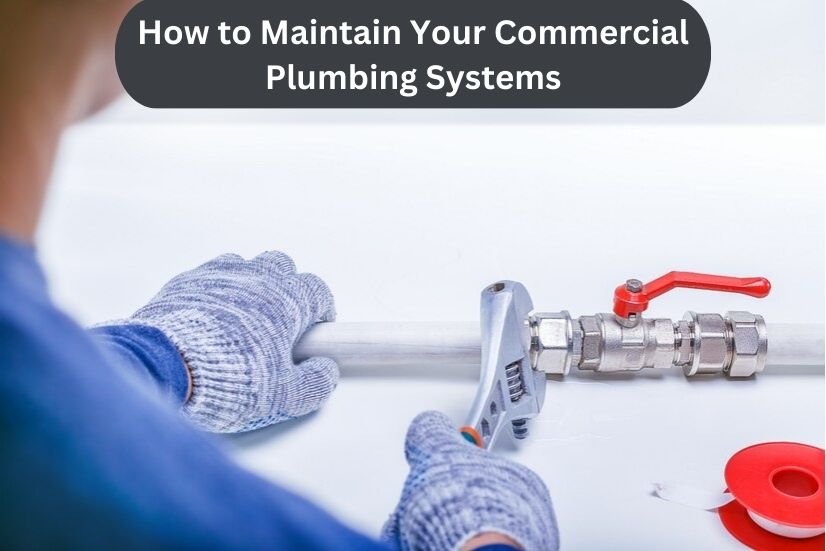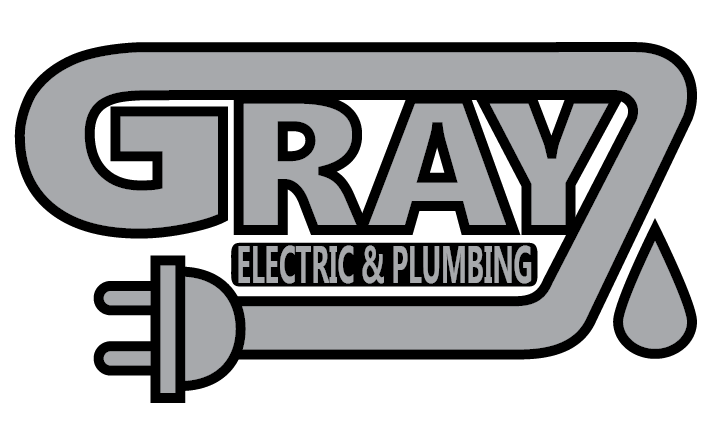Commercial plumbing systems are the backbone of any business, ensuring everything runs smoothly from restrooms to kitchens. When these systems fail, it can cause costly repairs, disrupt operations, and even lead to health risks. Maintaining them properly is key to avoiding these headaches. This guide will walk you through how to keep your commercial plumbing systems effective.
Why Regular Plumbing Maintenance Matters
Plumbing problems can escalate quickly in commercial buildings. A small leak can turn into a flood, and a clogged drain can halt operations. Regular maintenance can:
- Extend the lifespan of your plumbing system.
- Reduce water waste and lower utility bills.
- Prevent costly repairs and business interruptions.
By staying proactive, you’ll avoid emergency repairs that cost more than routine maintenance.
Schedule Routine Inspections
Routine inspections are the foundation of plumbing maintenance. A professional plumber can identify potential issues before they become significant problems.
What Inspections Cover
- Checking for leaks in pipes and faucets.
- Inspecting water heaters for sediment build-up.
- Evaluating sewer lines for blockages or cracks.
Tip: Schedule inspections at least twice yearly, especially in older buildings. Early detection saves money and hassle.
Prevent Clogs and Blockages
Clogged pipes are one of the most common issues in commercial plumbing systems. Over time, grease, food waste, and debris can build up in drains, causing backups.
How to Prevent Clogs:
- Install drain strainers to catch debris.
- Avoid pouring grease or oil down the drain.
- Schedule regular drain cleaning by professionals.
Quick Fact: Studies show grease accounts for 47% of drain blockages in commercial kitchens. Keep grease traps clean to avoid costly backups.
Monitor Water Pressure
High water pressure may seem harmless but can damage pipes over time. If the pressure is too high, it puts unnecessary strain on the system.
Steps to Manage Water Pressure:
- Use a pressure gauge to test water pressure.
- Keep pressure levels between 40-60 psi (pounds per square inch).
- Install a pressure-reducing valve if necessary.
Expert Tip: High water pressure can shorten the life of faucets and appliances, leading to frequent replacements.
Inspect Water Heaters Regularly
Commercial water heaters work harder than residential ones. Without proper maintenance, they can lose efficiency and fail prematurely.
How to Maintain Water Heaters:
- Flush the tank annually to remove sediment.
- Check the temperature settings (ideal range: 120-140°F).
- Inspect for signs of corrosion or leaks.
Did You Know? A sediment-filled water heater can reduce efficiency by up to 30%. Flushing it ensures consistent performance.
Protect Pipes in Winter
Freezing temperatures can cause pipes to burst, leading to expensive repairs. Prevent this by taking precautions during colder months.
Winterizing Your Plumbing System:
- Insulate exposed pipes, especially near exterior walls.
- Keep the heat on, even in unoccupied areas.
- Allow faucets to drip slightly during extreme cold to prevent freezing.
Pro Tip: Burst pipes can release hundreds of gallons of water in hours. Winter preparation is essential for avoiding disaster.
Invest in Smart Plumbing Technology
Modern technology makes maintaining plumbing systems more straightforward and more efficient. Smart devices can alert you to problems before they escalate.
Smart Plumbing Solutions:
- Leak detection sensors to monitor for leaks in real time.
- Automatic shut-off valves to prevent water damage during emergencies.
- Water usage trackers to identify inefficiencies.
Bonus: Businesses that invest in smart plumbing often see a 10-15% reduction in water bills.
Address Small Issues Quickly
A dripping faucet or a slow drain might not seem urgent, but ignoring them can lead to more significant problems. Minor issues often signal underlying problems that could worsen if left unaddressed.
Common Small Issues to Watch For:
- Discolored water (could indicate rust or pipe corrosion).
- Strange odors (might mean sewer line issues).
- Unusual noises in pipes (a sign of air pockets or blockages).
Action Step: Fixing minor issues quickly can save you thousands in repair costs later.
Keep Emergency Contacts Handy
Despite your best efforts, plumbing emergencies can still happen. A trusted plumber on speed dial ensures fast response times and minimizes downtime.
What to Look for in a Commercial Plumber:
- 24/7 availability.
- Experience with commercial systems.
- Strong reviews and certifications.
Reminder: Establishing a relationship with a reliable plumber before an emergency strikes is crucial for peace of mind.
Maintain Documentation
Keeping detailed records of maintenance and repairs helps track the health of your plumbing system. This information is invaluable for identifying patterns and planning future upgrades.
What to Document:
- Dates of inspections and repairs.
- Replacement parts and system upgrades.
- Warranties and service contracts.
Helpful Tip: Organized records make budgeting for future maintenance needs easier.
FAQs About Maintaining Commercial Plumbing Systems
Why is regular plumbing maintenance important?
Regular maintenance prevents costly repairs, reduces water waste, and extends the lifespan of your plumbing system.
How often should I schedule plumbing inspections?
Ideally, regularly schedule inspections twice a year or more for older systems or high-use facilities.
What are the most common causes of clogs in commercial plumbing?
The main culprits are grease, food debris, and improper waste disposal (like flushing wipes).
How can I prevent pipes from freezing in winter?
Insulate exposed pipes, maintain a steady indoor temperature, and let faucets drip during extreme cold.
What should I do if I notice a small leak?
Address it immediately! Small leaks can lead to more significant problems like water damage and higher utility bills.
How do I maintain water heaters in commercial settings?
Flush the tank annually, check the temperature settings, and regularly inspect for leaks or corrosion.
Can high water pressure damage pipes?
Yes, high water pressure strains pipes and fixtures, leading to leaks and reduced system lifespan.
What is the role of smart plumbing technology?
Smart devices monitor for leaks, track water usage, and provide early alerts for potential problems.
Why should I train staff on plumbing maintenance?
Educating employees helps prevent clogs, reduces improper disposal, and ensures minor issues are reported early.
What should I do during a plumbing emergency?
Turn off the main water supply immediately, call a professional plumber, and document the damage for insurance.
Conclusion: Proactive Care Saves Time and Money
Maintaining your commercial plumbing system doesn’t have to be overwhelming. By scheduling regular inspections in Grande Prairie, preventing clogs, and addressing issues early, you can avoid costly repairs and keep your business running smoothly.
Ready to take the next step? Contact us today to schedule an inspection or learn more about maintaining your plumbing system. Your business deserves the best, and we’re here to help!


